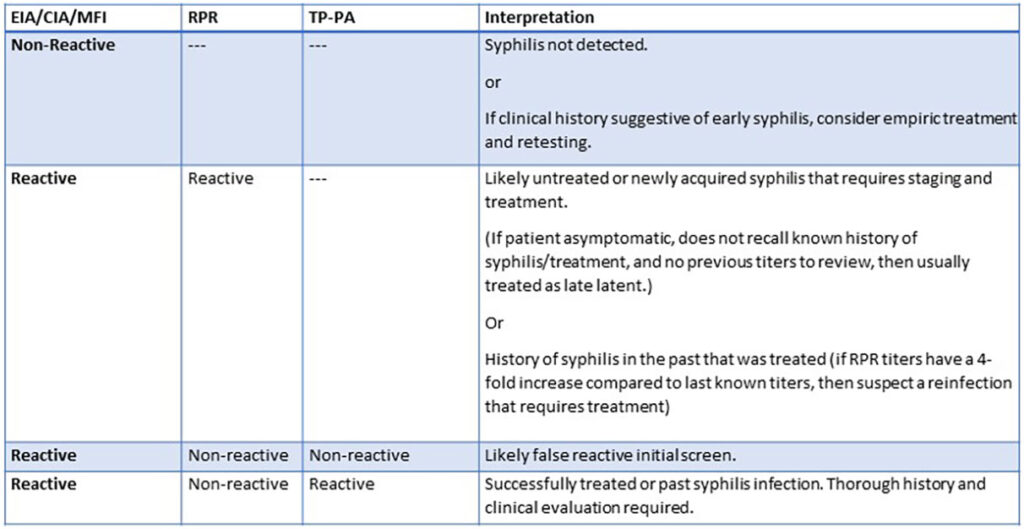
The spread of syphilis has varied from time to time, but it’s always important to get tested for it. Testing is necessary for a proper diagnosis so that a dermatologist can properly treat the disease. In mid-century America, syphilis awareness was promoted through posters and advertisements, but the epidemic has virtually disappeared from the US. These days, however, women in the United States are routinely tested for the disease, usually at the first prenatal visit.
Infection with syphilis is spread through sexual contact with infected persons, who in turn transmit the disease to their partners. This disease is transmitted through sex, and is a health risk for both men and women. The bacterium responsible for the disease is called a spirochete and is around 6 to 15 micrometers long and 0.25 micrometers in diameter. It is impossible to detect the bacterium through light microscopy, but it can survive briefly outside the body. Infection with syphilis is highly contagious and can have severe health consequences if not treated.
While there are no specific means to prevent infection with syphilis, it can be transmitted through sharing objects or casual contact. A previous infection with the disease does not prevent re-infection. The incubation period, or time between exposure and the onset of symptoms, is approximately three weeks or three months. Once the incubation period is over, the disease can be cured with a course of treatment. The first symptom of syphilis is a sore on the skin called a chancre, which develops between three weeks and three months after the infection.
During a syphilis screening, doctors should discuss risks and possible treatments. They should also discuss the importance of treating syphilis and the treatment of its complications. In addition, they should test women who deliver stillborn infants after 20 weeks of gestation. The screening process should include a discussion about the risk of syphilis. And pregnant women should be tested for the disease, if they are experiencing problems with childbirth.
Early diagnosis is important for syphilis prevention. It is important to know how to identify syphilis in pregnant women. Moreover, the diagnosis must be accurate. If a woman has been diagnosed with syphilis, she should be treated as soon as possible. Besides, she should be tested for syphilis if she is pregnant. The symptoms of syphilis vary from time to time.
In addition to abstaining from sex, women should consider mutually monogamous sex. The use of latex condoms is another way to reduce the risk of syphilis, but it’s essential to cover sores with condoms. Taking recreational drugs, especially marijuana, may also impair one’s judgment and lead to unsafe sexual practices. Therefore, it’s important to learn more about syphilis and its prevention.
In syphilis, there are two stages of the disease. The active stage begins after the rash has healed. It’s known as the latent stage. The latent stage can last from five to 20 years. The latent stage causes symptoms that may not be visible at all. Despite the symptoms of the disease, the infection is not fatal. The only side effect of syphilis is the pain.
A person who has had syphilis should be aware of its symptoms and seek treatment as soon as possible. It is essential to recognize the early stages of the disease, because they can lead to a more successful treatment. In addition, the symptoms of syphilis can be more severe in women, which is why a diagnosis is important. It is important to understand the symptoms and the disease as a whole.
The symptoms of syphilis depend on the stage of the disease. In the early stages, there is no risk of contracting the disease. If a woman is pregnant, the syphilis symptoms will be similar to those of a normal pregnancy. The infection will be passed on to the baby through the placenta. In later stages, it will mimic the symptoms of palmoplantar psoriasis.
Detecting syphilis is a major challenge. It is difficult to screen for syphilis with a simple blood test. But thanks to new point-of-care tests, doctors can quickly diagnose syphilis with high accuracy. PCR is the most common point-of-care test for syphilis, and is approved by the FDA. The test sensitivity ranges from seventy-five percent to ninety-two percent.
